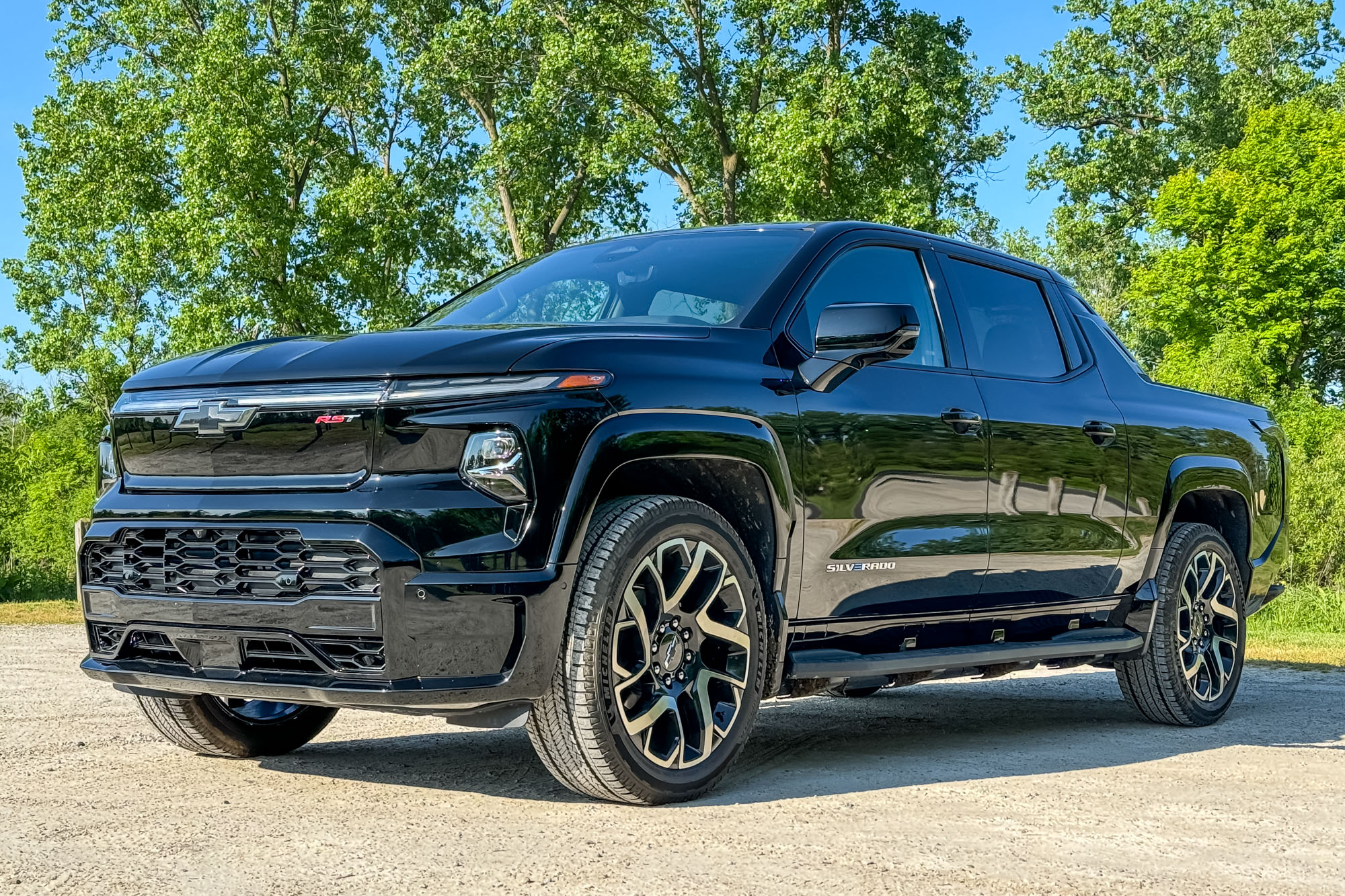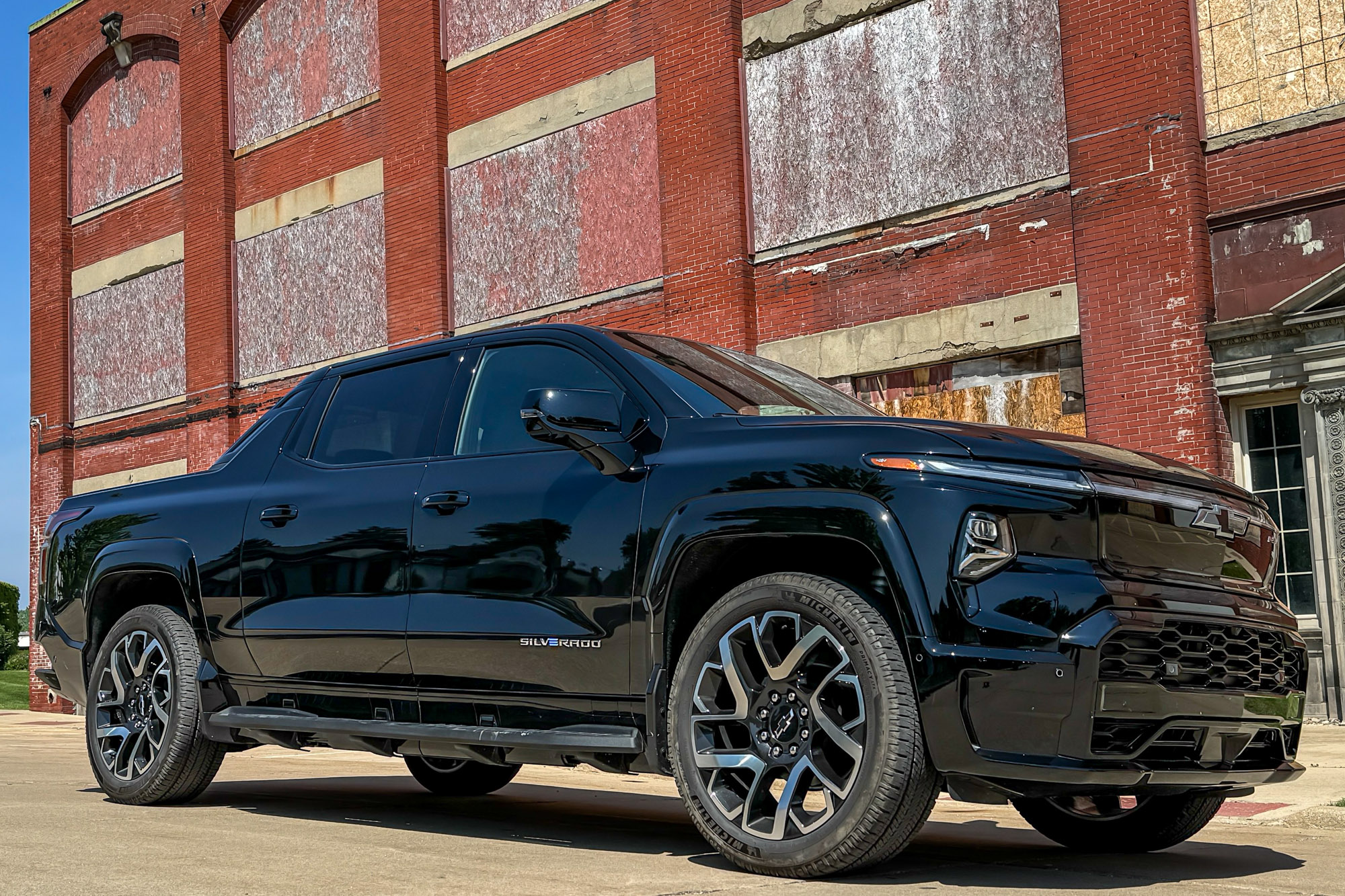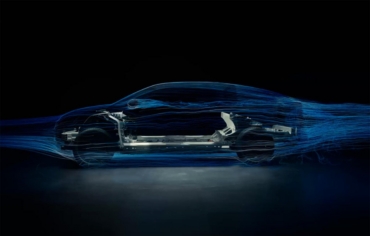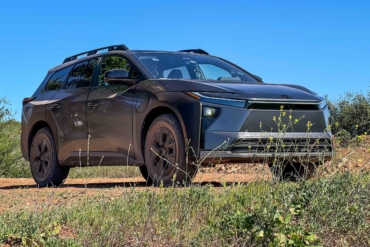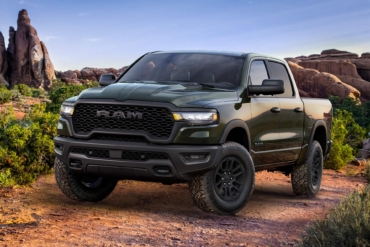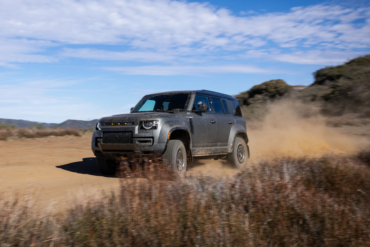I press a small logo that looks like two mirrored lightning bolts on the center display and turn on WOW mode to gain access to full power. From there, I floor the accelerator and the Silverado EV lifts its front axle like a funny car! 754 horsepower and 785 pound-feet of torque hurtles the Silverado EV forward and shoves me backward with massive force. And 60 mph goes by in about 4.5 seconds and the truck keeps pulling — hard.
How many hydrocarbons burned to achieve this? Zero.
The 2024 Chevrolet Silverado EV First-Edition RST rolls down the road carrying a massive battery pack, an electric motor for each axle, and a fully independent suspension that uses adjustable air bladders for springs. This large, Avalanche-esque-styled machine carries truck specs and a truck name, but is a world apart from the Silverado we know.
And where lies the opportunity to try all this whiz-bang, forward-thinking tech? Detroit, of course. I jumped at the chance to head to the (Electric) Motor City and see just how well the next chapter of automotive history reads.
In short: With a 205kWh battery pack and 440 miles of range on a single charge, the Silverado EV truly relieves almost all range anxiety. And the Google built-in-equipped, 17.7-inch center display offers plenty of easy-to-use gadgets while on the move. The Silverado EV will tow up to 10,000 pounds and carry 1,500 pounds. Quite impressive! But, be ready to shell out over $96,000 and still live in an interior full of harder plastics and, strangely, no Apple CarPlay or Android Auto.
- Vehicle: 4-door, 5-seat, truck
- Dimensions: 233.1" L x 83.8" W x 78.7" H, 145.7" wheelbase
- Cargo (eTrunk under the hood): 10.7 cu. ft.
- Powertrain: Two electric motors, one mounted on each axle
- Total HP/ Torque (in WOW mode): 754 hp, 785 lb.-ft.
- Transmission/Driven wheels: Single speed drive down gears/all-wheel-drive
- Range: 440 mi.
- Peak charging: 350 kW, 100 miles of range in 10 minutes
- MSRP: $96,495+
Pros
- Incredible power, immediate response
- Quiet, well isolated cabin on the interstate
- Mid-gate and “eTrunk” offer incredible cargo carrying flexibility
- Google built-in part of the massive center display
- Four-wheel steering allows tighter than expected turning radius
Cons
- No Apple CarPlay or Android Auto
- Interior adorned with several hard plastics
- Nearly $100K starting price puts it beyond most budgets
- 24" wheels are overkill
2024 Chevrolet Silverado EV Review
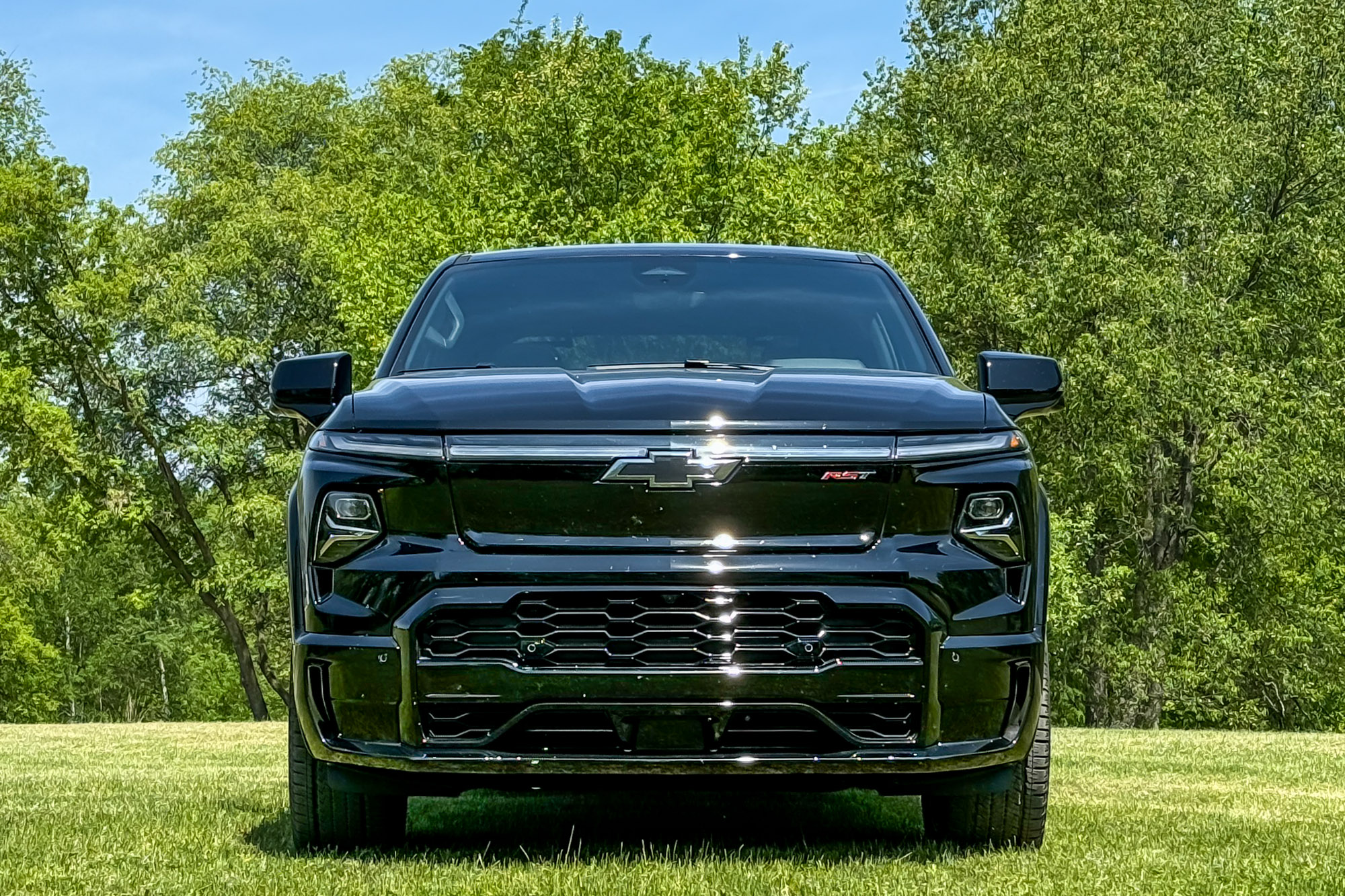
What Is a Silverado EV?
Yes, this looks like a Silverado, at first glance at least, but Chevrolet’s traditional, internal combustion engine (ICE) powered pickup and this EV share virtually nothing. Chevrolet built the EV with a different frame, suspension, and powertrain.
To start, just like the rest of the GM brand’s electric lineup, the Silverado EV uses the Ultium platform. That holds the battery pack and incorporates it into the structure.
For the structure itself, Chevrolet uses something called body frame integral. Not your typical body-on-frame light-duty truck platform, but strong enough to truck things that trucks do.
Moreover, engineers ditched the solid rear axle for an independent setup. That’s similar to what Ford did with the F-150 Lightning.
For this First-Edition Silverado EV truck, four air springs hold it up. And, with a push of a button, you can adjust the truck to ride 2 inches higher or lower than the standard ride height, for a total of 4 inches of variation.
Finally, two electric motors provide propulsion. The motor in back is actually the smaller, less powerful of the two, making the Silverado EV — kinda sorta — front-wheel-drive biased.
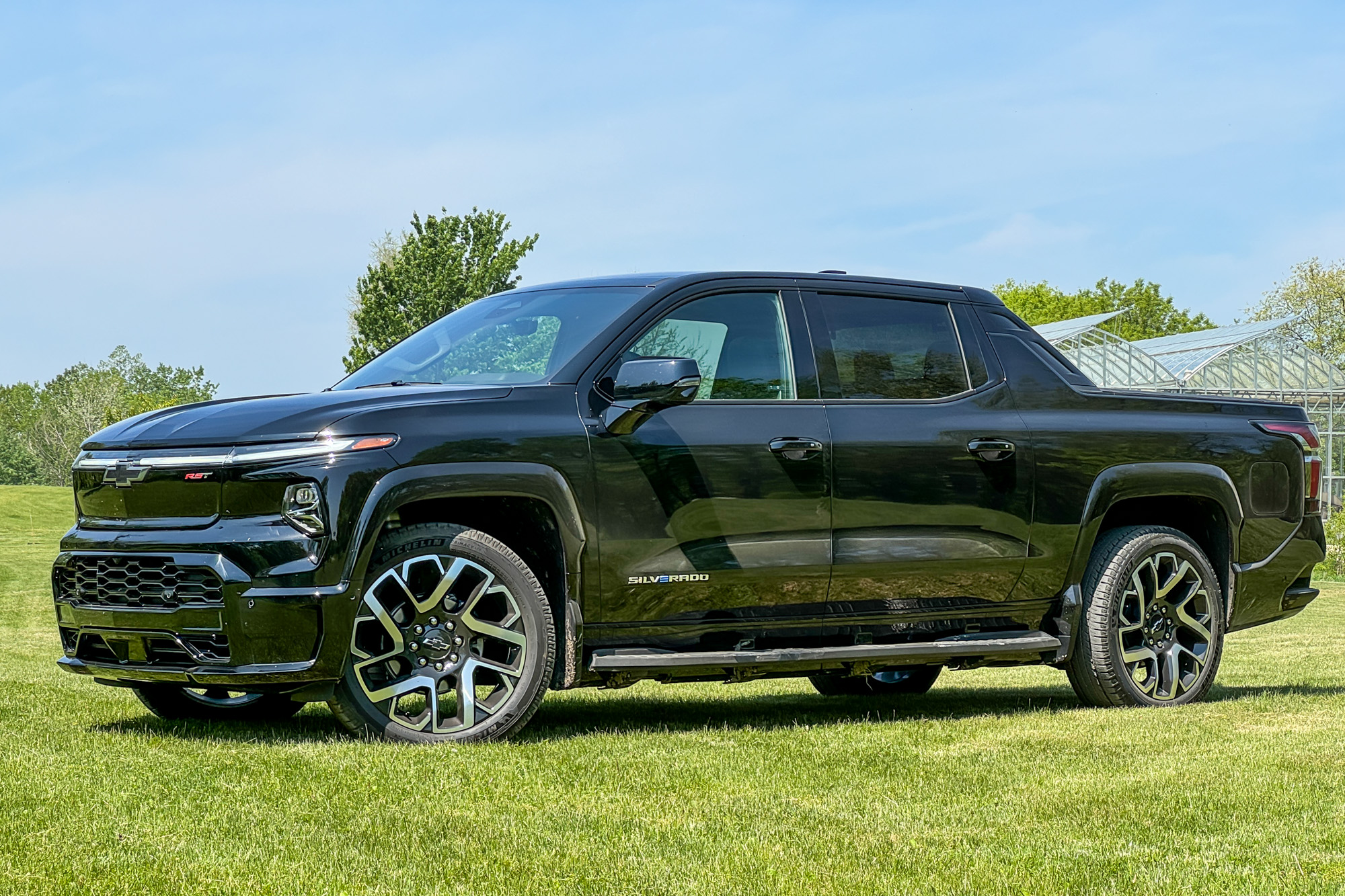
Electric Acceleration!
Each of those motors attaches to a single-speed drive-down gear and a differential. Chevrolet calls them drive units. A smaller induction motor handles the rear axle while a bigger, permanent magnet motor takes care of the front axle.
The two motors receive power from a massive 205kWh battery pack. And, unlike Chevrolet’s Blazer EV, this pack delivers 800 V as opposed to 400.
Essentially, Chevrolet took two 100kWh packs, layered them on top of each other, and wired them in series, which combines each pack’s voltage output. This offers two advantages. First, higher voltage output lowers resistance and aids efficiency. Second, it allows faster charging. Indeed, the Silverado EV will accept a 350kW charging rate, which Chevrolet says will add 100 miles of range in 10 minutes.
And you get power — a lot of power. In this First-Edition RST, when you tap WOW (Wide Open Watts) mode, 754 horsepower and 785 pound-feet of torque are at the whim of your right foot. Bear in mind, you feel that torque figure pretty much immediately and always. So, you feel an immense pull whenever you want it.
Every stab of the accelerator results in an instant shove to the seatback. And, the strong force lifts the front end and causes the steering to wander a bit as you rapidly increase speed in a 4-ton (my own estimate) bullet train of a truck.
One small caveat. Chevrolet only offers full power in WOW mode. Normal driving mode offers noticeably less, but still plenty to feel quick.
The other drive modes are Tow/Haul, Off-Road, and My Mode. Chevrolet says that many factors, including drive modes, affect peak power offered, but does not disclose any figures. Based on my butt-dyno, I bet you get around the Silverado EV Work Truck’s (WT) outputs of 510 horsepower and 615 pound-feet of torque in everyday driving.
Interior Tech
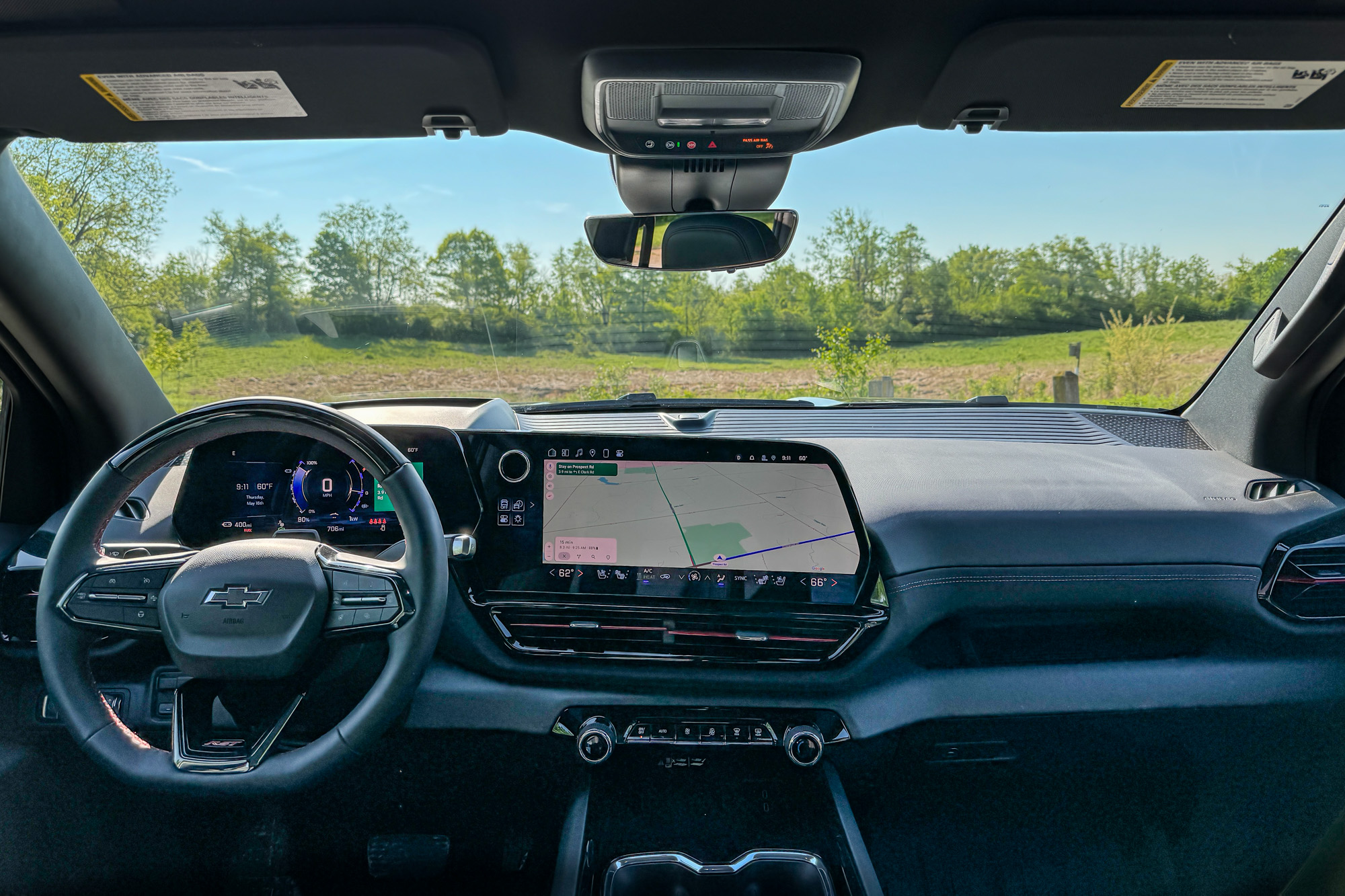
Regardless of drive mode, Chevrolet built a very spacious and accommodating cabin. The only configuration offered is a crew cab. It provides abundant space in both rows.
First-Edition models include heated rear seats and two USB-C ports as well. Even though you look up at a fixed glass roof, all but the NBA-sized among us will enjoy headroom, too.
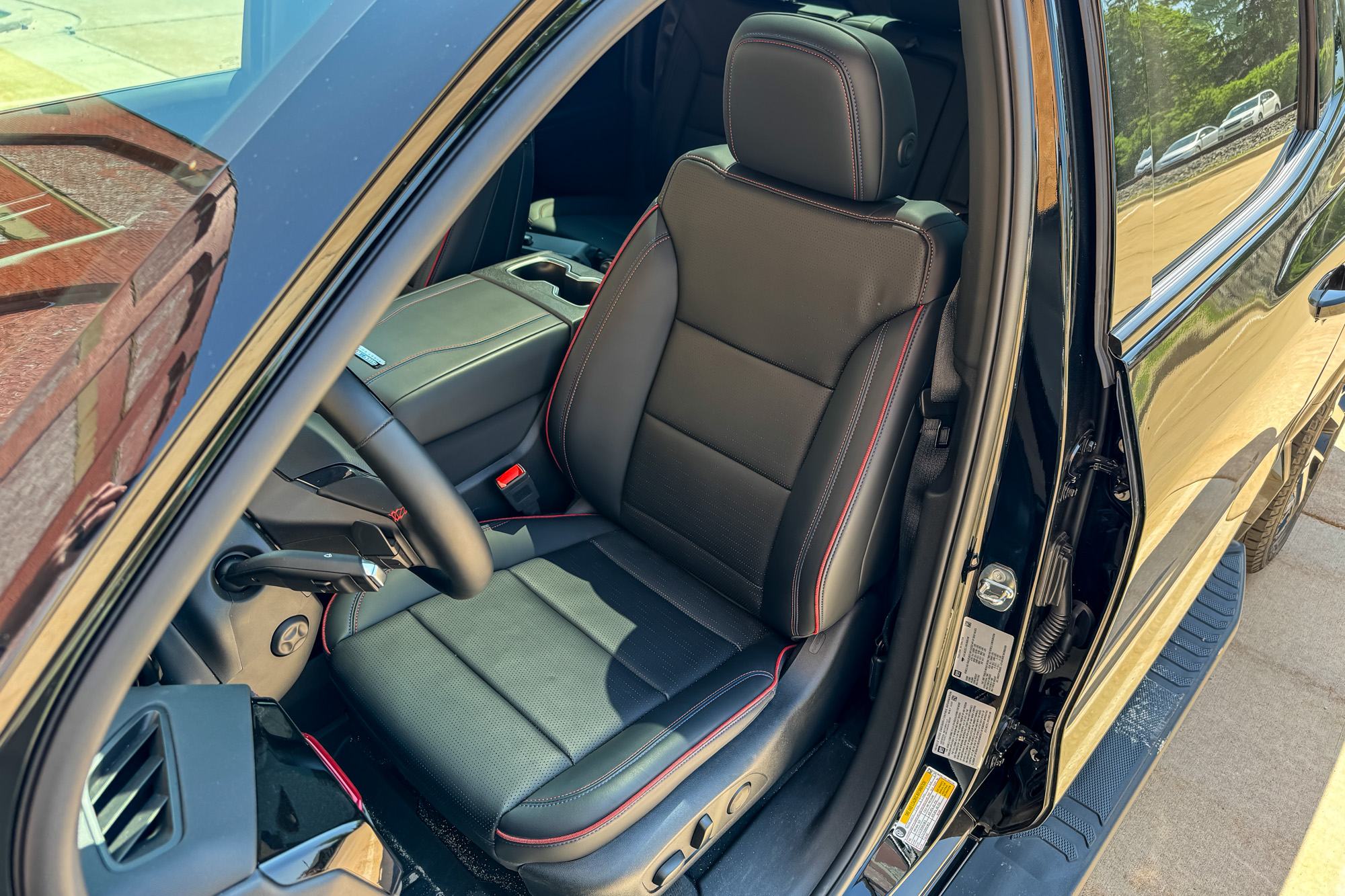
Up front, several screens adorn the dash. The driver uses an 11-inch digital cluster as well as a 14-inch head-up display to see all pertinent information. In the center lies a 17.7-inch center console screen that includes plenty of apps like Amazon Alexa, Spotify, and Google Built-in.
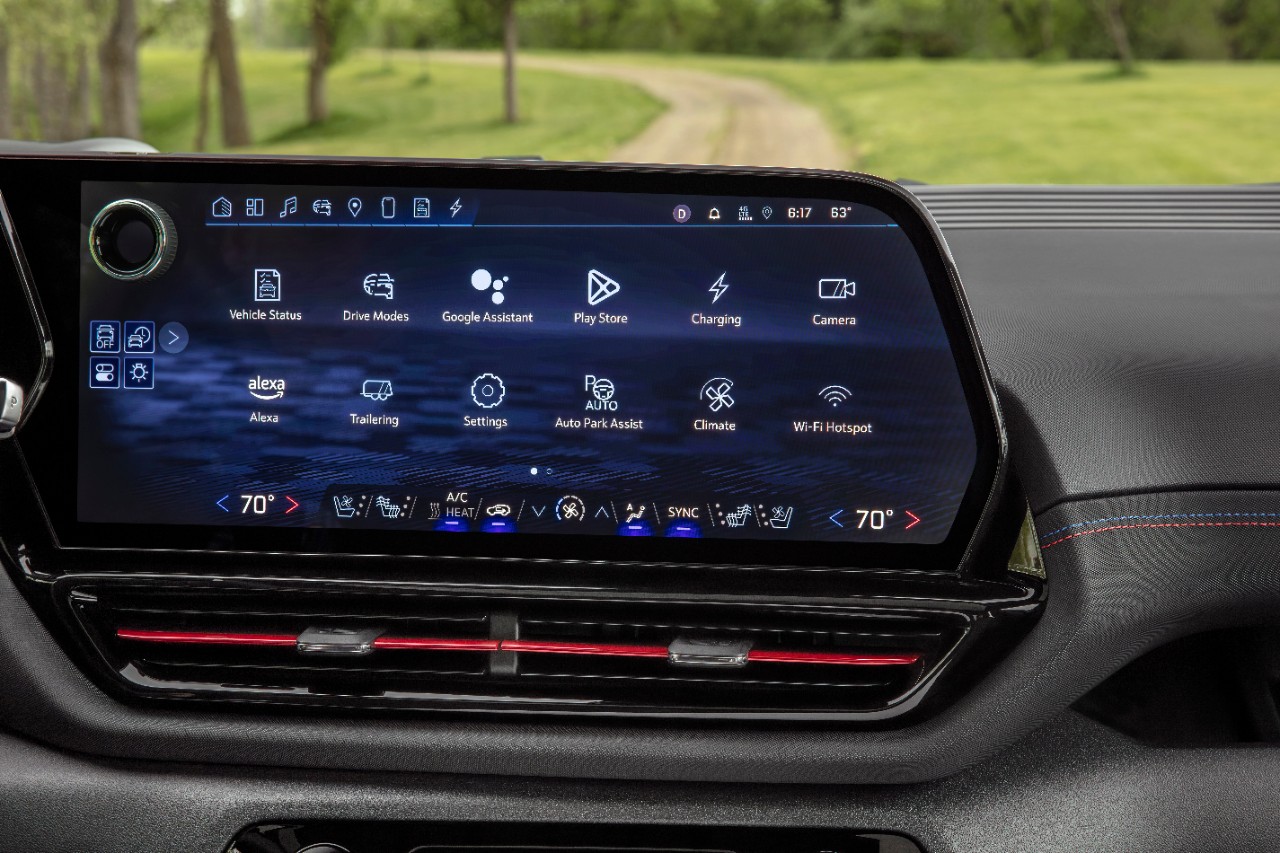
However, Chevrolet only offers Bluetooth to pair your phone, no Apple CarPlay or Android Auto. Thanks to all the aforementioned, it’s not a huge loss, but — frankly — annoying.
Another neat trick of the Silverado EV, no start button. By getting in the truck with the key fob, it knows to turn on. And, it will turn off once you leave. Polestar 2 offers this as well. But unlike Polestar, you can turn the Silverado EV off via buttons on the center display if you wish.
That off switch is right next to the adjustable one-pedal driving button. At the maximum setting, the Silverado EV offers what feels like 0.4 G of deceleration just by lifting off the accelerator. Plenty for everyday driving. Impressive!
Silverado EV Advantages
Forgoing an engine, transmission, center differential, gas tank, exhaust system, and driveshaft frees up space, as you can imagine. Chevrolet took advantage of that when packaging the Silverado EV.
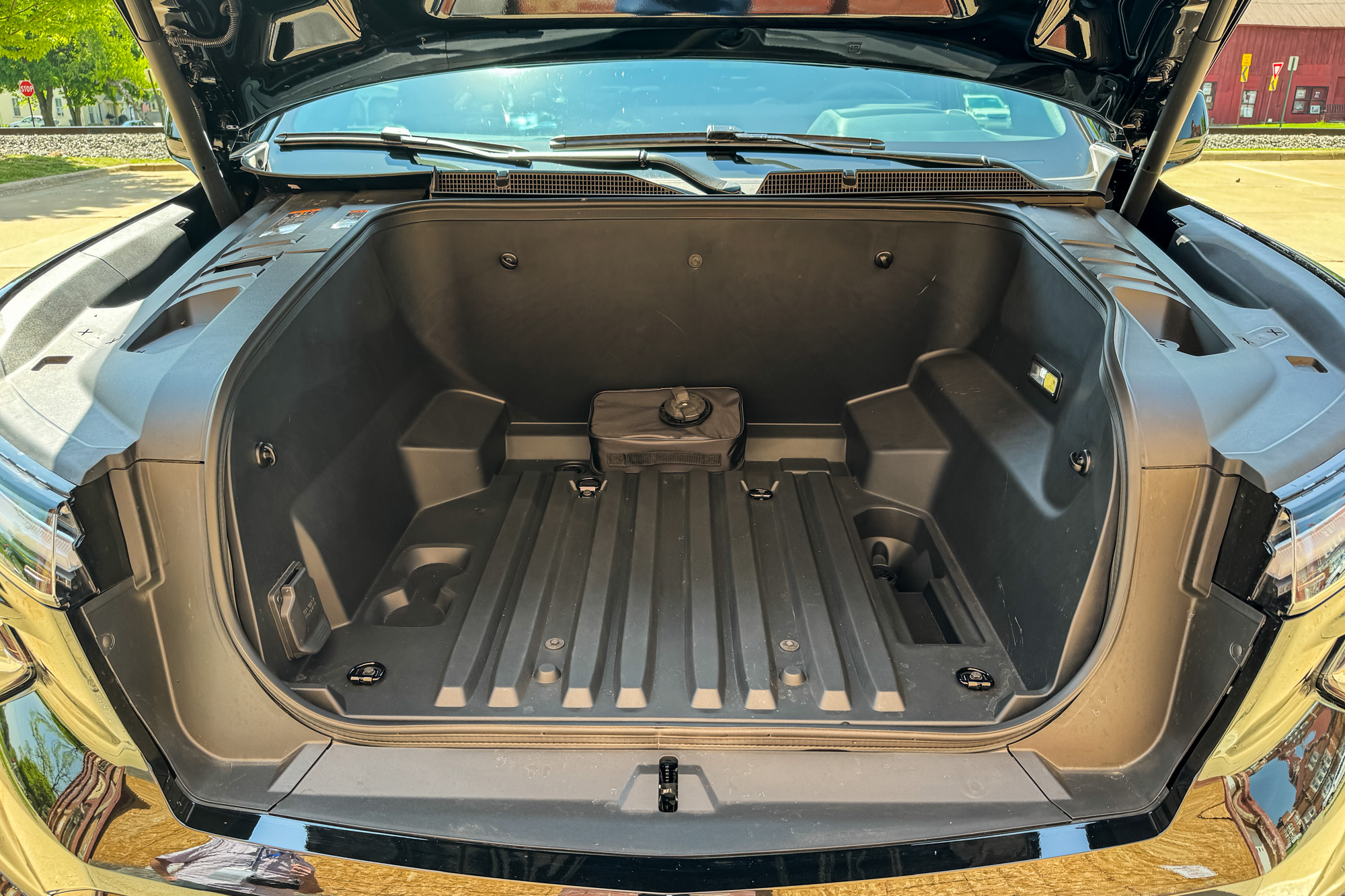
To start, under the hood lies a watertight, 10.7-cubic-foot eTrunk. Just like a car’s trunk, it has D rings and hooks to tie things up. But it also has two cupholders and an A/C power outlet for a tailgating-friendly space. In the First Edition, the hood opens and closes electrically.
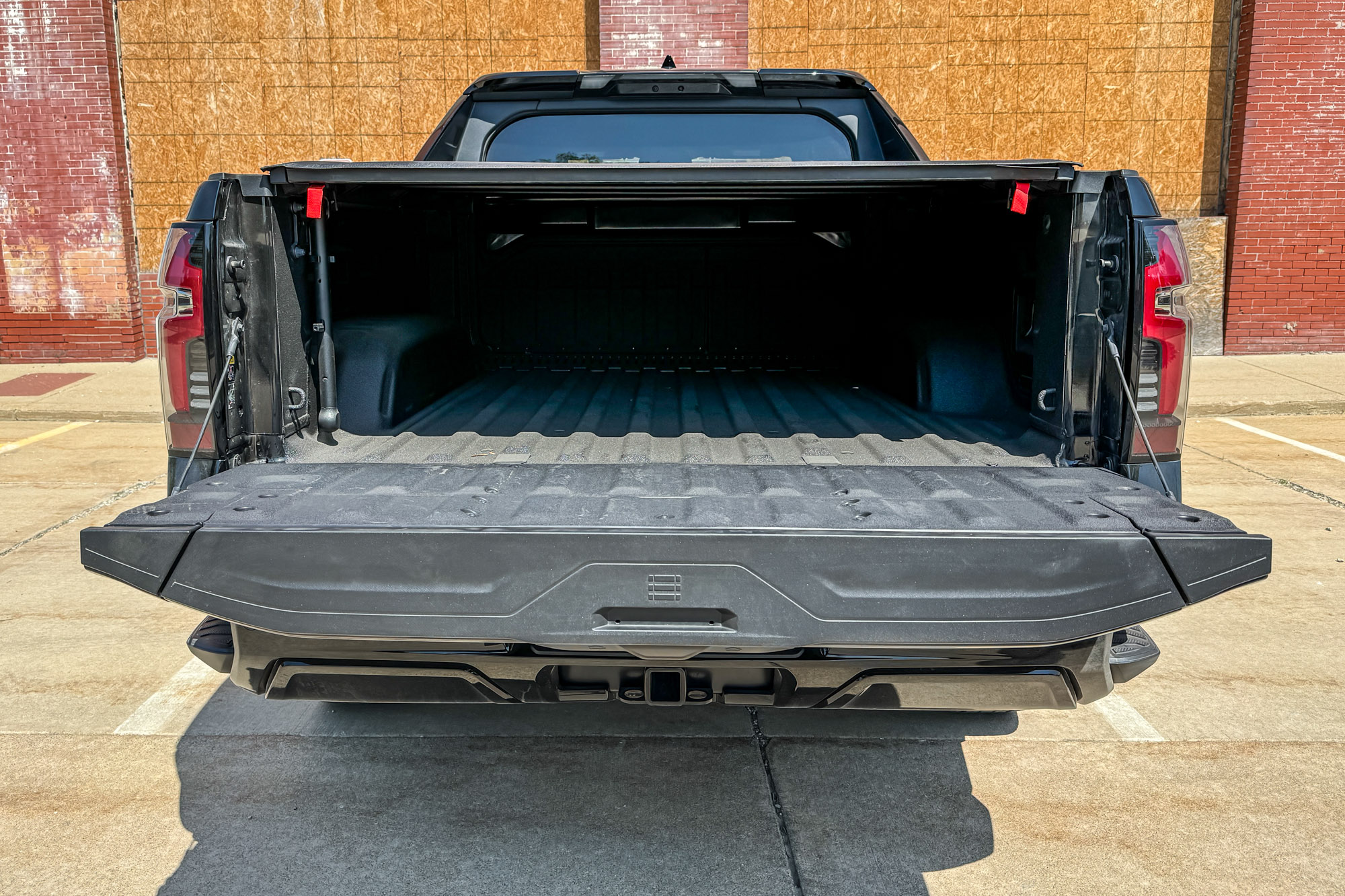
The tailgate opens with a push of a button, too. You choose whether to open the full gate or a section on top to add flexibility to its use.
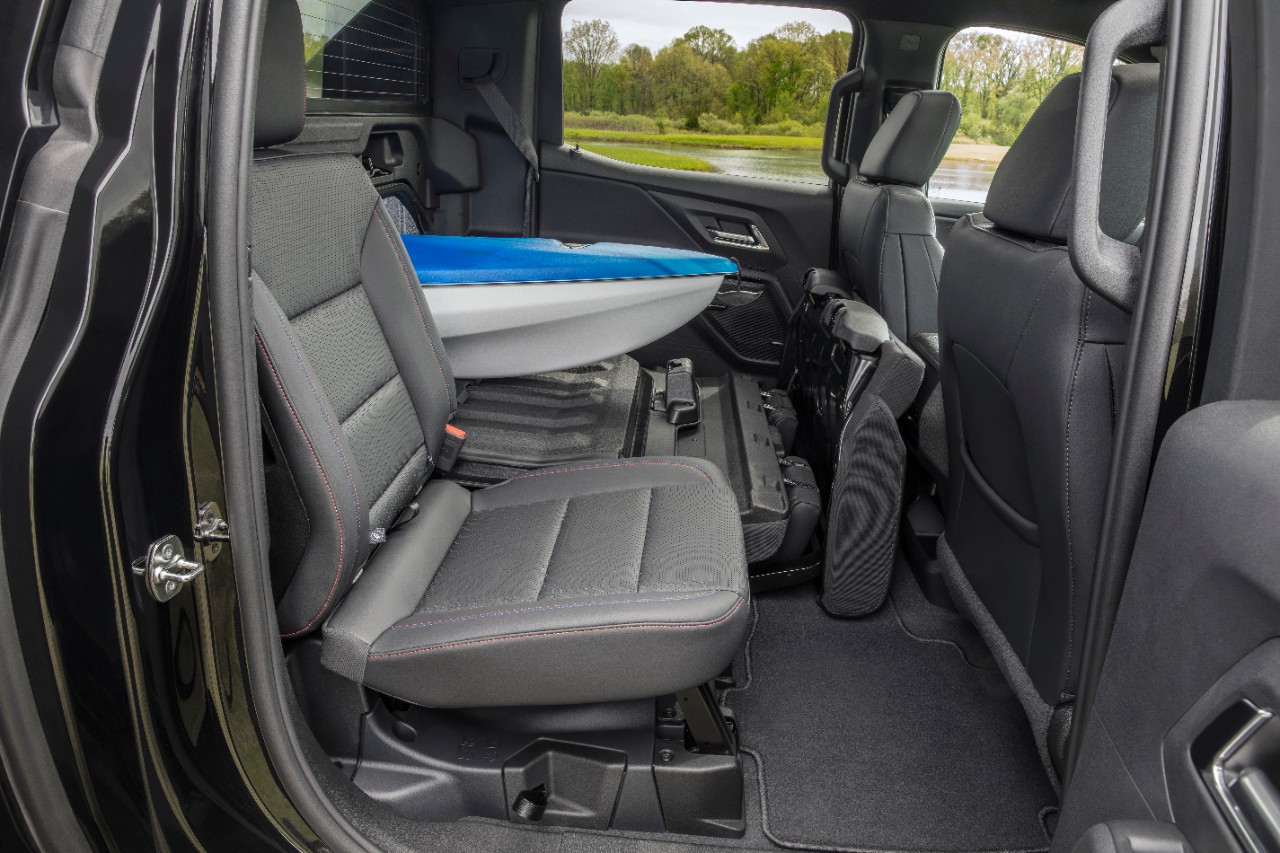
Better still, you also get a flexible opening mid-gate. Fold the second-row seats out of the way, and you can literally open access to the truck bed like a 60/40 split seat in a crossover SUV. And, as long as you have a tonneau cover, you have a 9-foot-long space that remains “inside” the truck with the lockable tailgate closed.
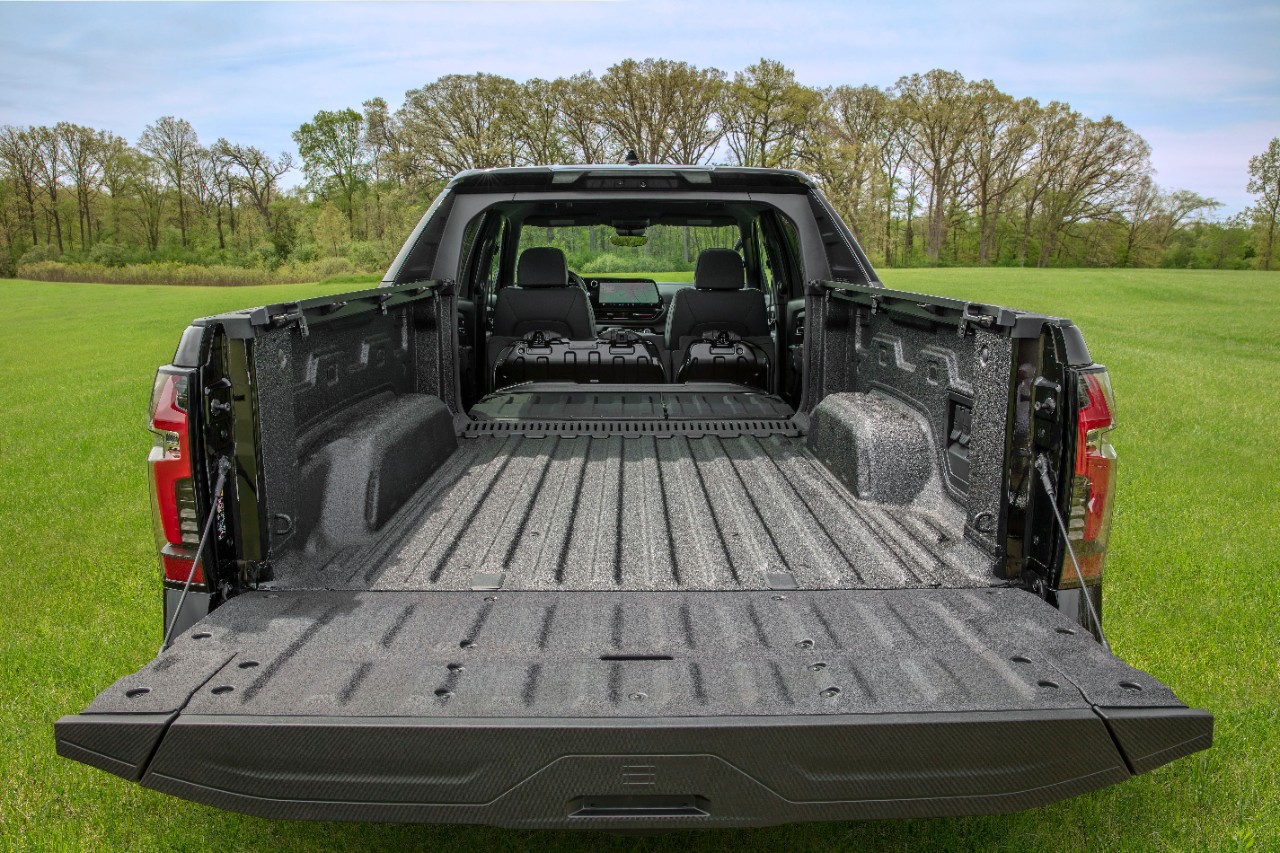
The bed itself is 5 feet, 11 inches. You can even remove the rear glass and gain full access to the entire back half of the truck straight to the bed.

Charge All the Things
Finally, with a full charge, you effectively command a ridiculously big rolling backup battery. Chevrolet offers 11 outlets and up to 10.2 kW of power outbound of the truck to power all matter of electric needs, be they lights, power tools, or a mega sound system.
Chevrolet goes even further. Buy an accessory charge cord from Chevrolet, and you can charge another BEV with your BEV.
And, through a new venture called GM Energy, you can equip your home to use your truck as a backup battery.
Plenty of Truckness
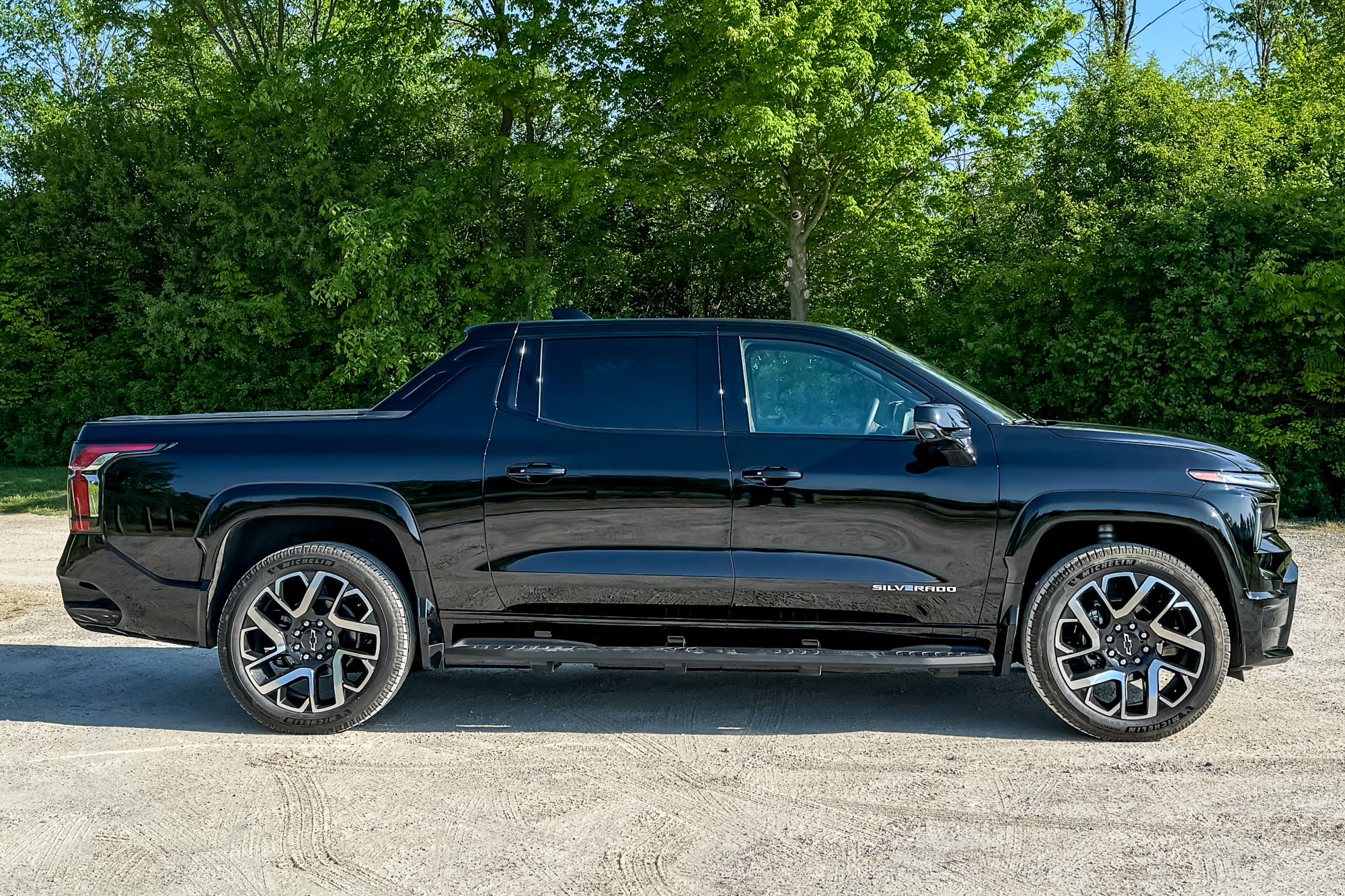
Ultimately, Chevrolet built a truck. Hence, the brand expects it to do truck things. Albeit lower than the ICE counterparts, the Silverado will haul a respectable 1,500 pounds of payload. That’s closer to Chevrolet Colorado/GMC Canyon figures, but still adequate for the vast majority of users.
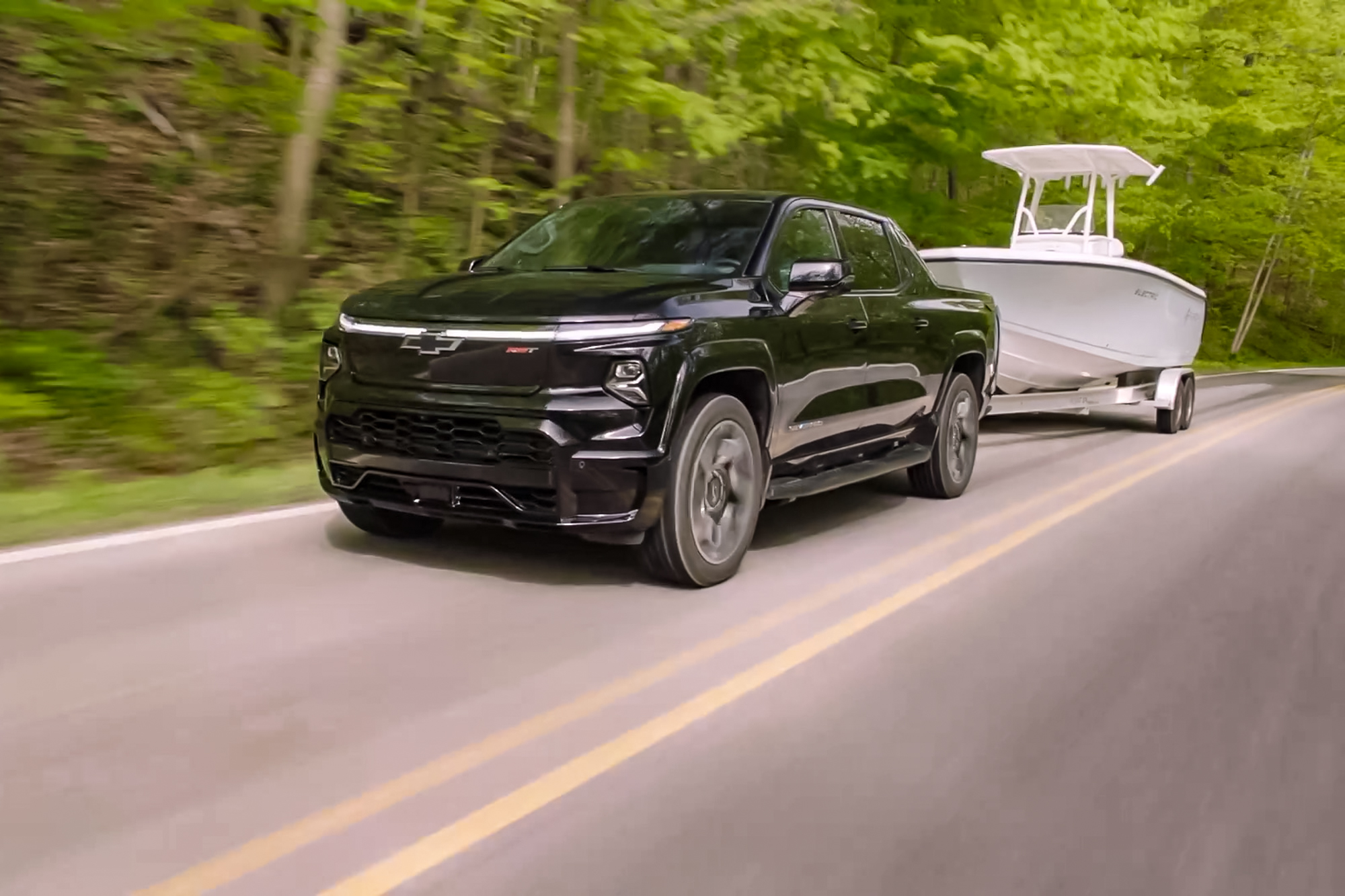
More encouraging, Chevrolet rated the Silverado EV to tow up to 10,000 pounds. And, the true advantage of the big battery reveals itself here. Chevrolet says that, typically, pulling a trailer will cut range in half. That still leaves you with over 200 miles per charge to work with.
Moreover, the First Edition comes with Supercruise automated driving. And it works while towing a trailer. Chevrolet offered a big boat for me to pull around to try the technology, and it impressed me how well the system dealt with the added weight, length, and forces imposed on the truck.
Civilized Cruiser
Forget about what you know about trucks as you get behind the wheel of the Silverado EV, especially this First-Edition RST. The way it rides, handles, and accelerates departs from norms.
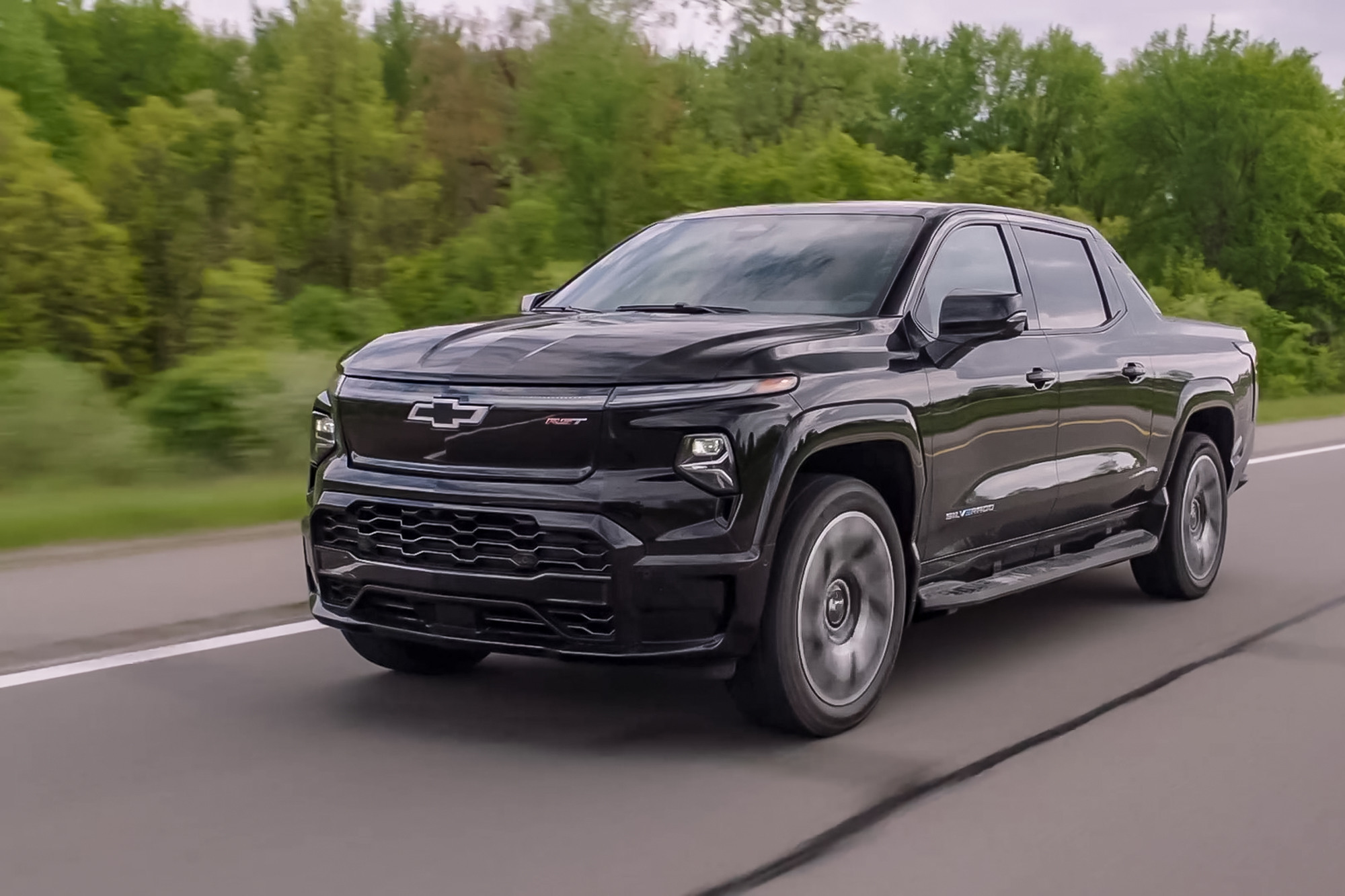
To start, it rolls down the road quite quietly. Chevrolet isolated the cabin from both road and wind noise really well. Even at interstate speeds, it’s easy to carry a conversation at normal volume. Moreover, dual-zone climate control, as well as heated and ventilated seats, will ensure the conversation isn’t an argument over HVAC settings.
And, the air suspension casually soaks up bumps and lumps in the road. In Detroit, that’s a proper test.
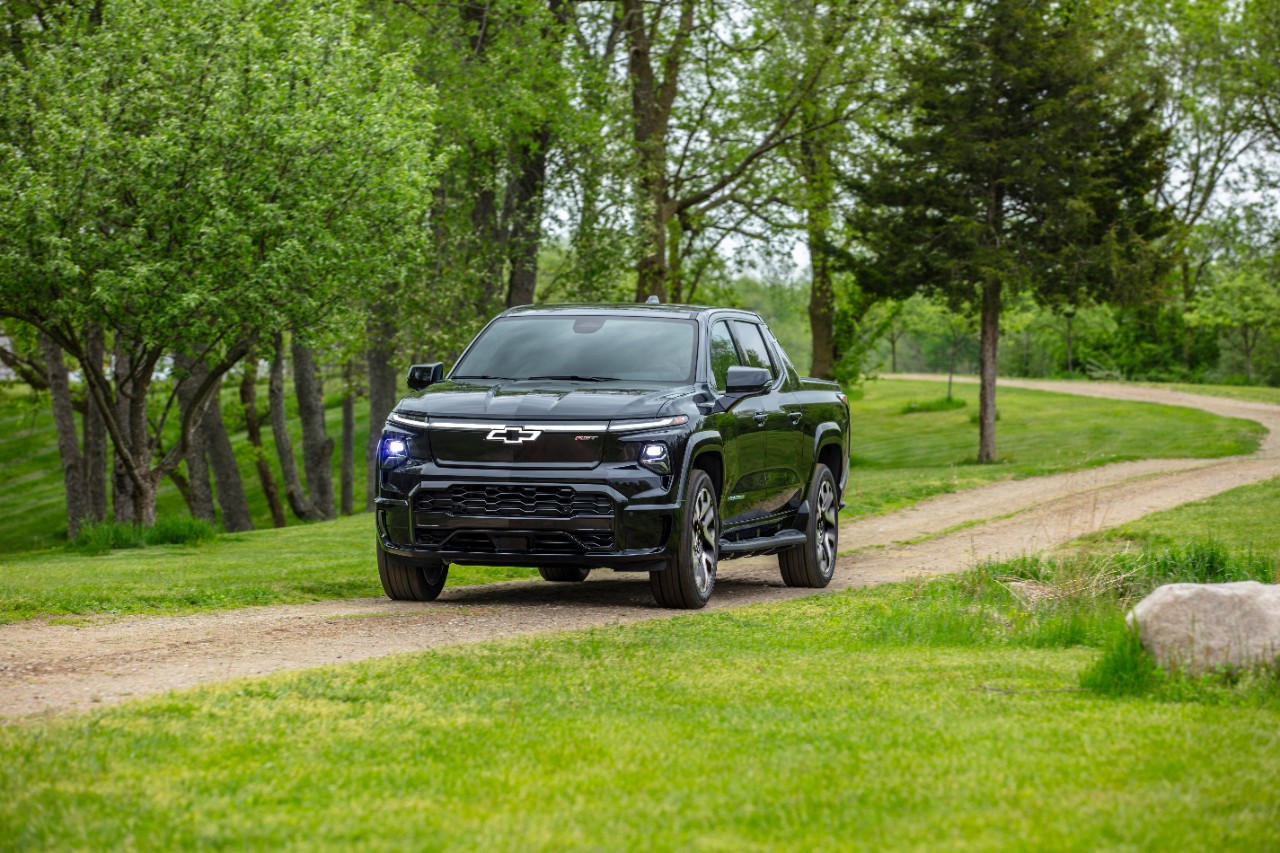
The truck generally handles well, too — better than most trucks, thanks to its four-wheel independent suspension. The one exception comes when you need to accelerate and corner at once. The Silverado EV partially suffers from its own success here.
Heavy acceleration lifts the front end and makes the steering light. On freeway entrance ramps, for example, you’ll find yourself adding more steering to avoid understeering off the road. It’s a bit unsettling.
On the plus side, the truck feels generally stable thanks to a four-wheel steering system. Moreover, despite spanning nearly 20 feet from nose to tail, the Silverado EV will manage to turn around in just 42 feet of space. That’s impressively tight for a full-size pickup.
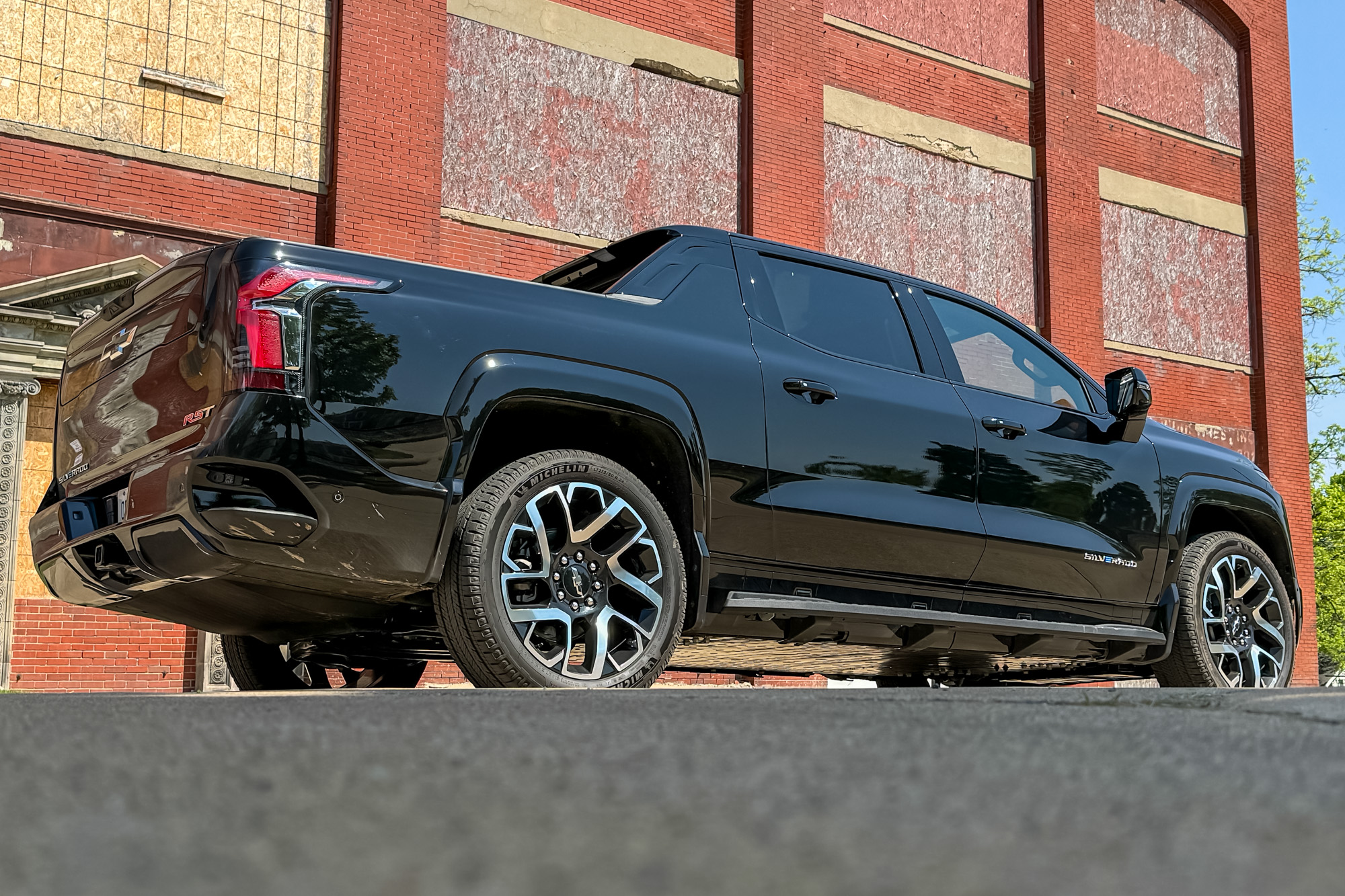
2024 Chevrolet Silverado EV First-Edition RST Review Summary
Other than the commercial WT, which Chevrolet first introduced in September 2023, your only Silverado EV choice is this First-Edition RST trim. It costs — please sit down — $96,495 when you include the $1,995 destination charge. Gulp. That’s an expensive Chevy!
Chevrolet promises we’ll see an LT trim later this year and a Trail Boss in 2025. But for now, WT and First-Edition RST are it.

For that money, you get, in my opinion, gaudy 24-inch wheels, too much hard plastic inside, and a little too much resemblance to the … let’s say, controversially styled Chevrolet Avalanche.
However, you also get a comfortable, capable, powerful, technically advanced, tailpipe-free way to travel. The Silverado delivers on truck needs, over-delivers on passenger and cargo space, and knocks it out of the park as a mobile power station.
Chevrolet successfully showed us many of the advantages of electric propulsion in the Silverado EV, in very tangible terms. This is the future. And the future is bright.
